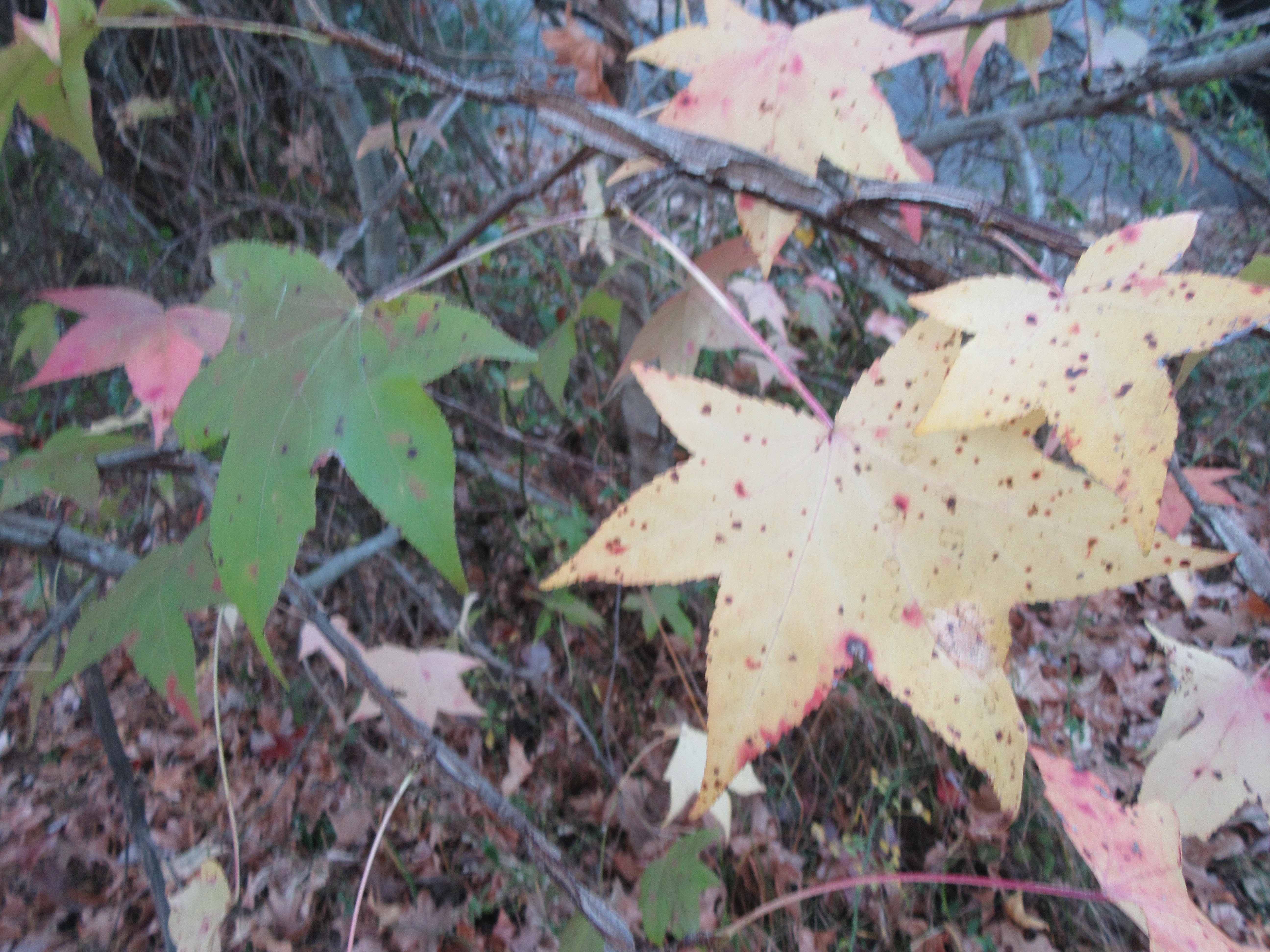Autumn’s leaf showers are well under way and many suburbanites are blowing, raking, bagging, vacuuming, cursing and sending the leaves away. Bulging bags of leaves and piles awaiting vacuuming line
The U.S. Environmental Protection Agency’s website indicates that leaves and “yard trimmings” account for 12 percent of the nation’s solid waste, 34 million tons a year. In 2023, in areas served by Fairfax County, yard waste collected totaled 1,591 truckloads or 17 percent of total waste generated. But the county provides leaf collection services only to 45,000 customers out of 426,400 housing units. Private haulers collect the remaining 90 percent.
Leaves are not trash, say entomologists and others. Fall leaves are assets. They should stay on the ground as nature intended.
“Composting is nature’s way of recycling,” says Fairfax County’s website. Leaves and other plants, fruit and vegetable peels and other organic materials are biodegradable, which means that organisms break them down over time.
Healthy Soil
Leaf mulch provides nutrients that enrich the soil and help suppress unwanted plants. Some gardeners call decomposed leaves “black gold.”
Leaf mulch can improve soil’s porosity, can retain moisture and reduce the need to water, which is especially important during the dry spells Virginia has experienced recently.
Another benefit: By making your own mulch, you don’t have to buy it and lug it home.
Curb Global Warming
A Sept. 22 Better Homes and Gardens article reports that leaving the leaves can help combat global warming because when leaves go to the landfill, they decompose without oxygen and produce methane, a potent greenhouse gas that is warming the planet.
By not using a gas-powered leaf blower, you can also cut other air and noise pollution. Reducing truck traffic can curb vehicular pollution. Transportation accounts for around 43 percent of greenhouse gas emissions in the county.
Home to Critters
Leaves provide habitat for many critters. Turtles, toads, birds, mammals and invertebrates depend on leaf litter for food, shelter and nesting material.
There’s a busy ecosystem in and under those leaves. Worms, snails, spiders, beetles, millipedes and microscopic organisms like bacteria and fungi find a home in dead organic material. Leaves insulate animals that hide in or beneath the soil from the cold.
Many insects overwinter in leaves and animals like chipmunks, turtles, birds and amphibians rely on insects for food. Most butterflies and moths overwinter as an egg, caterpillar, chrysalis or adult. The National Wildlife Federation reports that 94 percent of moths rely on the leaf layer to complete their life cycle. Their caterpillars shelter under the leaves and emerge as adults in the spring. Caterpillars are a staple for many birds feeding their young in the spring. Removing leaves can mean reducing the number of beneficial insects and birds.
Margaret Fisher, Outreach Coordinator for Plant NOVA Natives/Plant NOVA Trees, offers, “We need native plants in our yards to support the insects that support the birds and the rest of the ecosystem. Many of those insects overwinter in the fallen leaves, but if we blow or haul them away, we don’t allow those insects to complete their life cycles.”
Why Care About Insects?
The late biologist Edward O. Wilson said that insects are “the little things that run the world.” In “The Diversity of Life,” he wrote the following:
“So important are insects and other land-dwelling arthropods that if all were to disappear, humanity probably could not last more than a few months. Most of the amphibians, reptiles, birds, and mammals would crash to extinction about the same time. Next would go the bulk of the flowering plants and with them the physical structure of most forests and other terrestrial habitats of the world. The land surface would literally rot. As dead vegetation piled up and dried out, closing the channels of the nutrient cycles, other complex forms of vegetation would die off, and with them all but a few remnants of the land vertebrates.”
City of Alexandria Leaf Vacuuming and Leaf Bag Collection Started Oct. 28, 2024
Alexandria residents who receive City trash collection receive three passes by vacuuming trucks during leaf season. Crews will post signs listing the earliest dates of the second and third passes in each zone, but inclement weather may cause schedule delays. It will take crews several days to complete a single vacuuming pass in each zone, and it is not unusual to not see a truck on the first posted date for collection. Residents can find the Residential Leaf Collection Viewer map to look up assigned leaf collection dates based on their home address.
City of Alexandria Leaf Bag Collection
During leaf collection season, the City provides biodegradable paper bags for leaves. The bags are available at numerous City facilities and are free of charge. Bags are collected at the front curb on the regular trash collection day. Leaf bag distribution at City facilities began Tuesday, Oct. 15.
How to Prepare:
- * Remove dirt, stones, litter and other debris from leaves before placing in bags.
- * Only use paper bags. Leaves in plastic bags are considered trash, and will be thrown away as trash at the Covanta Energy-from-Waste plant.
- * Place paper bags at the front curb, on your regular trash collection day.
- Free City leaf bags are available on a first come, first serve basis, while supplies last. Limit 15 bags per residential household per visit.
- Bags are available at the following locations:
- * City Hall, 301 King Street (Main Lobby)
Monday - Friday, 7 a.m. - 8 p.m. - * City of Alexandria Self-Serve Shed, Corner of Roth Street and Business Center Drive
Available 24/7 - * Charles Houston Recreation Center, 901 Wythe Street
Monday - Saturday, 9 a.m. - 9 p.m.
Sunday, 1 p.m. - 5 p.m. - * Patrick Henry Recreation Center, 4653 Taney Avenue
Monday - Friday, 9 a.m. - 9 p.m.
Saturday, 9 a.m. - 6 p.m.
